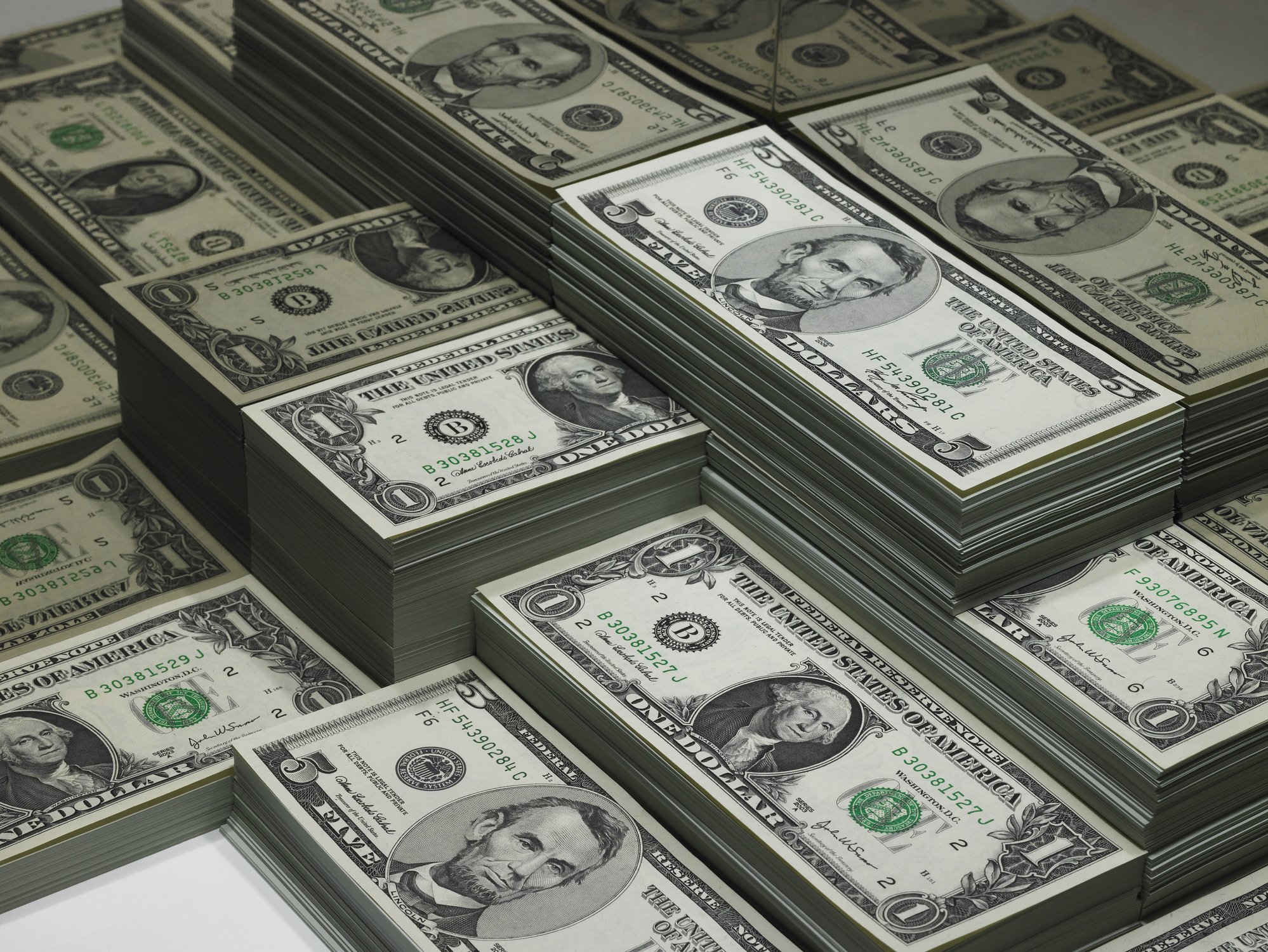New study suggests that actually, money can buy you happiness


A free daily email with the biggest news stories of the day – and the best features from TheWeek.com
You are now subscribed
Your newsletter sign-up was successful
Can money buy happiness? Two researchers posit that for most Americans, "the answer is, seemingly, yes," The Washington Post reports.
Prominent researchers Daniel Kahneman and Matthew Killingsworth posit that happiness steadily increases as incomes rises, and "even accelerates as pay rises beyond $100,000 a year — as long as the person enjoys a certain baseline level of happiness, to begin with," Bloomberg explains. This conclusion, shared in a joint study published in the Proceedings of the National Academy of Sciences, contradicts the previously held belief that "people are generally happier as they earn more, with their joy leveling out when their income hits $75,000," says the Post.
Kahneman, a Nobel Prize-winning economist and psychologist, initially concluded in a 2010 study that "emotional well-being [also] rises with log income, but there is no further progress beyond an annual income of $75,000." However, in 2021 Killingsworth, a happiness researcher and senior fellow at the University of Pennsylvania's Wharton School, found that "experienced well-being" can continue to rise with salaries well beyond $200,000, the Post reports.
The Week
Escape your echo chamber. Get the facts behind the news, plus analysis from multiple perspectives.

Sign up for The Week's Free Newsletters
From our morning news briefing to a weekly Good News Newsletter, get the best of The Week delivered directly to your inbox.
From our morning news briefing to a weekly Good News Newsletter, get the best of The Week delivered directly to your inbox.
The pair called their latest effort an "adversarial collaboration," where they challenged one another's theories with the help of a third party. The study surveyed 33,391 employed adults aged between 18 and 65 in the U.S., with reported household incomes of at least $10,000. Kahneman and Killingsworth said they observed subjects with salaries up to $500,000, but lacked conclusive data beyond that level of income.
The researchers did identify a new happiness plateau, "but only among the unhappiest 20 percent of people, and only then when they start earning over $100,000," Bloomberg adds. "But even members of this unhappy group became happier as their income increased up to six figures." After this point, money stops affecting happiness, and "the miseries that remain are not alleviated by high income," the study says.
"In the simplest terms, this suggests that for most people larger incomes are associated with greater happiness," Killingsworth said in a statement about the study.
A free daily email with the biggest news stories of the day – and the best features from TheWeek.com
Theara Coleman has worked as a staff writer at The Week since September 2022. She frequently writes about technology, education, literature and general news. She was previously a contributing writer and assistant editor at Honeysuckle Magazine, where she covered racial politics and cannabis industry news.
-
 ‘Poor time management isn’t just an inconvenience’
‘Poor time management isn’t just an inconvenience’Instant Opinion Opinion, comment and editorials of the day
-
 Bad Bunny’s Super Bowl: A win for unity
Bad Bunny’s Super Bowl: A win for unityFeature The global superstar's halftime show was a celebration for everyone to enjoy
-
 Book reviews: ‘Bonfire of the Murdochs’ and ‘The Typewriter and the Guillotine’
Book reviews: ‘Bonfire of the Murdochs’ and ‘The Typewriter and the Guillotine’Feature New insights into the Murdoch family’s turmoil and a renowned journalist’s time in pre-World War II Paris
-
 Trump wants a weaker dollar, but economists aren’t so sure
Trump wants a weaker dollar, but economists aren’t so sureTalking Points A weaker dollar can make imports more expensive but also boost gold
-
 TikTok secures deal to remain in US
TikTok secures deal to remain in USSpeed Read ByteDance will form a US version of the popular video-sharing platform
-
 Unemployment rate ticks up amid fall job losses
Unemployment rate ticks up amid fall job lossesSpeed Read Data released by the Commerce Department indicates ‘one of the weakest American labor markets in years’
-
 The longevity economy booms as people live longer
The longevity economy booms as people live longerThe Explainer The sector is projected to reach $27 trillion by 2030
-
 Texas is trying to become America’s next financial hub
Texas is trying to become America’s next financial hubIn the Spotlight The Lone Star State could soon have three major stock exchanges
-
 US mints final penny after 232-year run
US mints final penny after 232-year runSpeed Read Production of the one-cent coin has ended
-
 How could worsening consumer sentiment affect the economy?
How could worsening consumer sentiment affect the economy?Today’s Big Question Sentiment dropped this month to a near-record low
-
 Musk wins $1 trillion Tesla pay package
Musk wins $1 trillion Tesla pay packageSpeed Read The package would expand his stake in the company to 25%
